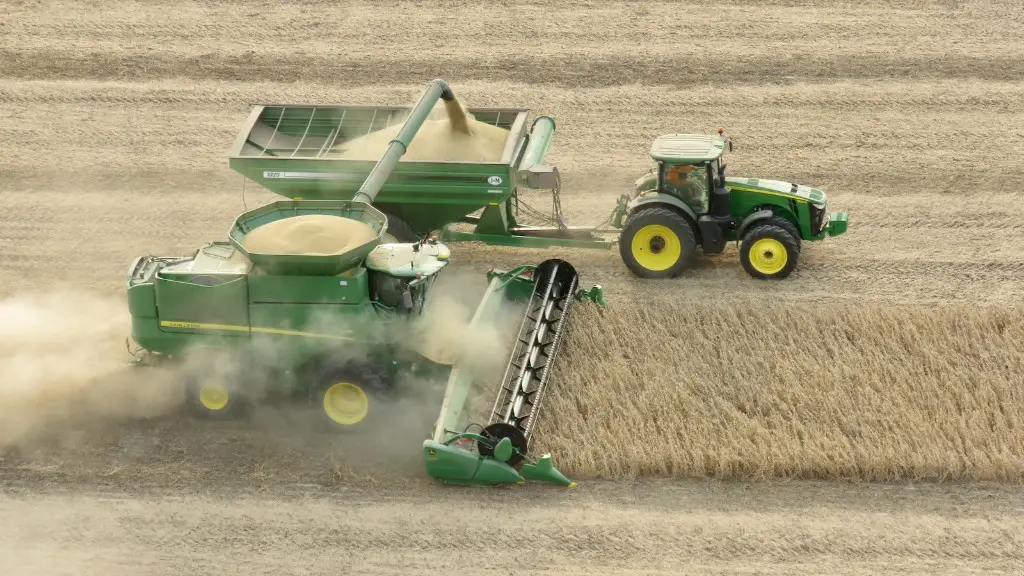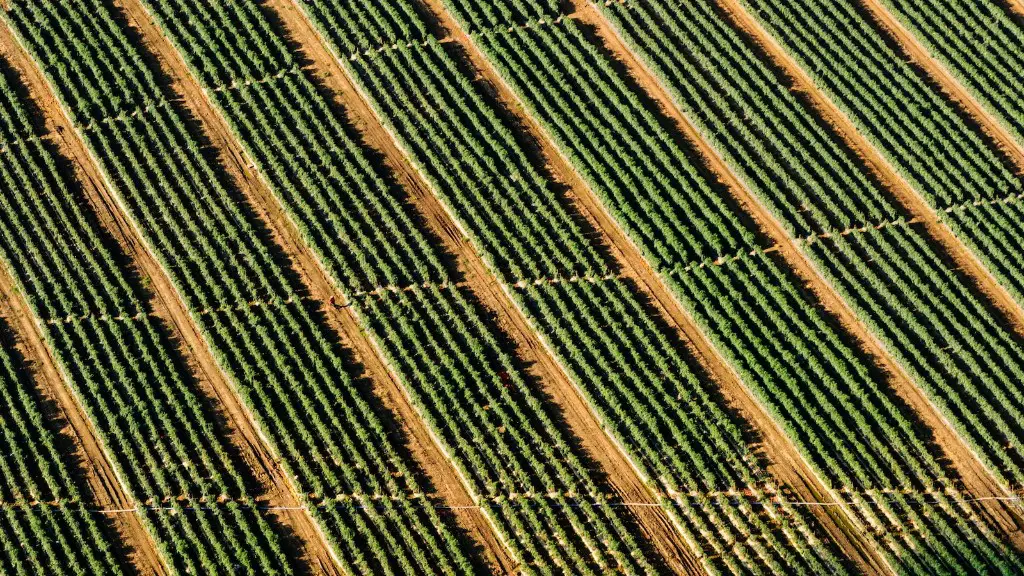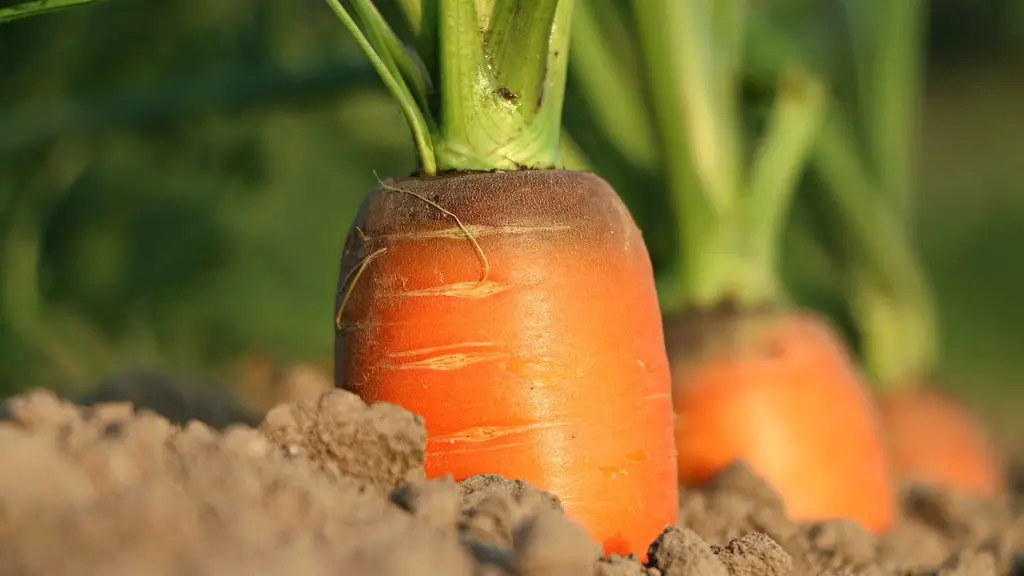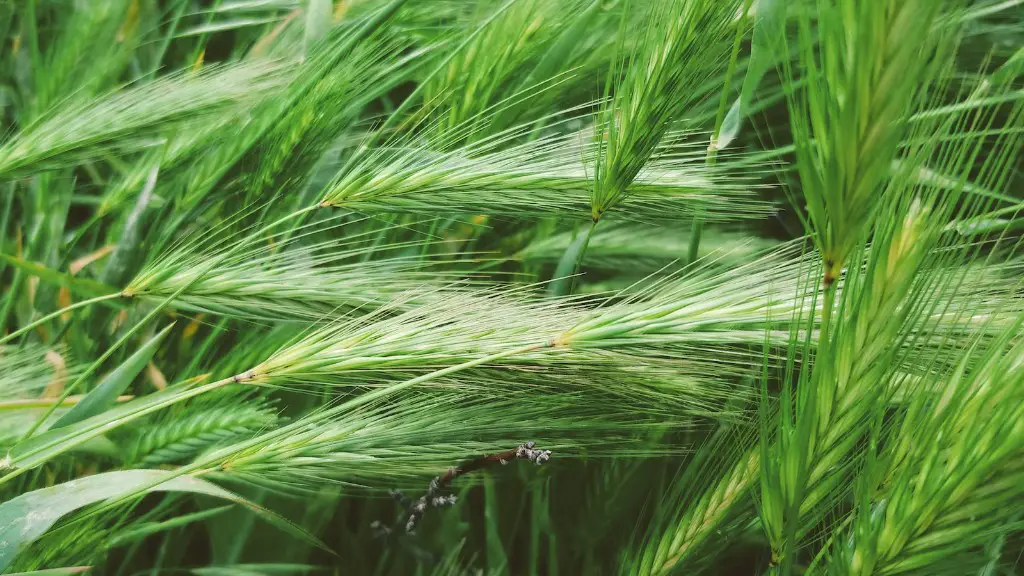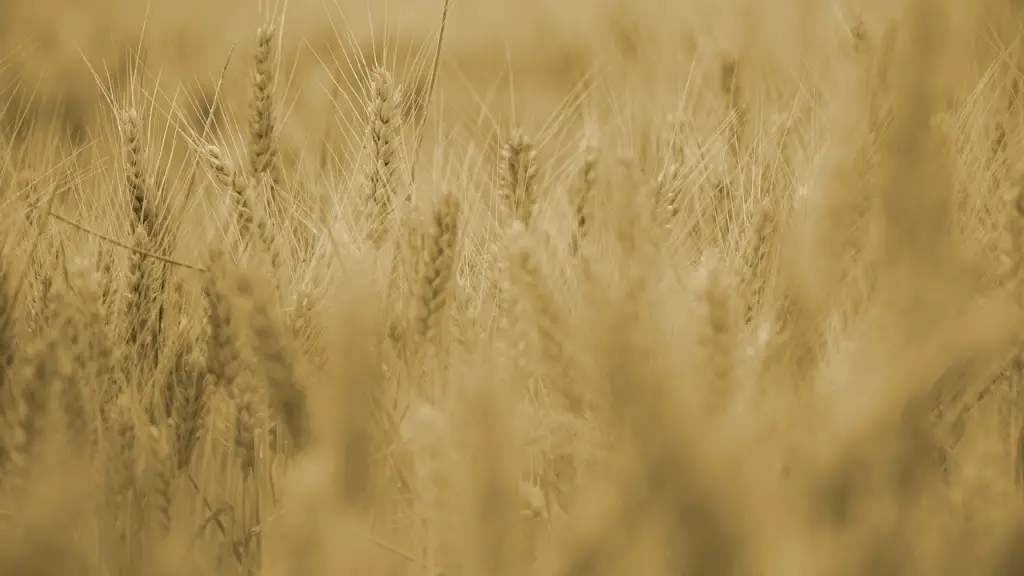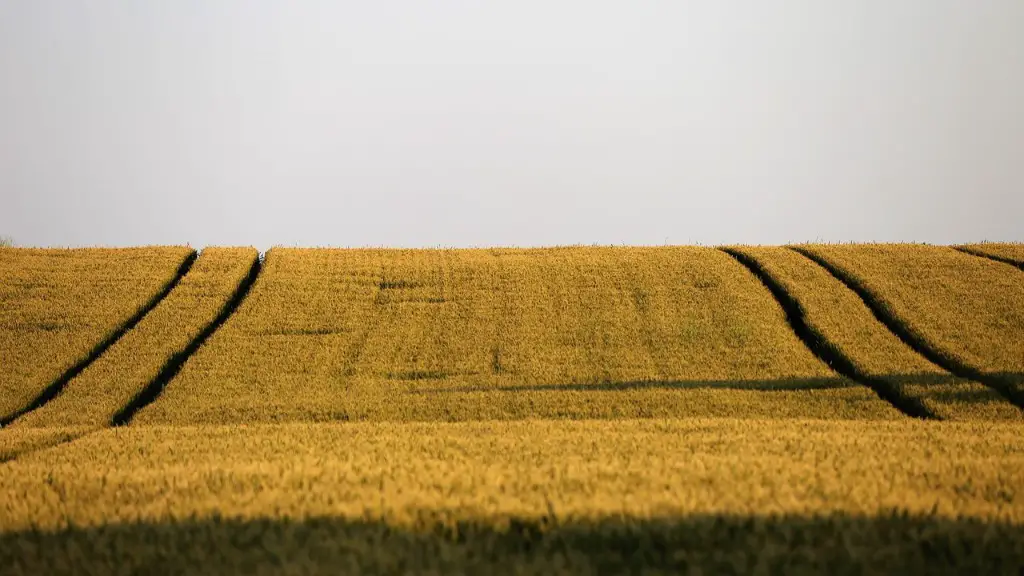Climate change is a long-term alteration in temperature, typical weather patterns, or average precipitation in a place. Climate change could affect agriculture in many ways, for instance, by making some crops more difficult to grow, by influencing the pests and diseases that affect crops, or by changing the length of the growing season. Climate change has the potential to increase yields of some crops, while simultaneously decreasing the productivity of others. In places where climate change has already begun to affect agriculture, farmers are struggling to adapt.
There is a lot of uncertainty when it comes to theimpact of climate change on agriculture in Jamaica. The country relies heavily on imported food, and with changing weather patterns, it is difficult to predict how rainfall and droughts will affect the ability to grow crops. Climate change could lead to higher temperatures and less rainfall, which would make it difficult to grow traditional crops such as coffee and sugarcane. Jamaica will need to adapt its agricultural practices in order to maintain a stable food supply in the face of a changing climate.
How does climate change affect farmers in Jamaica?
The agriculture sector in the country is greatly affected by extreme climate events. The major events that have a significant negative influence on agriculture are hurricanes, floods, landslides, droughts and heavy winds. These events can cause damage to crops, livestock and infrastructure, and can lead to loss of livelihoods for farmers and other people working in the agricultural sector. In addition, extreme weather events can also disrupt food supply chains and lead to higher food prices.
Global warming can have a number of negative impacts on crops, including reduced growth and reduced sugar content. Additionally, global warming can lead to an increase in weeds, blights, and harmful insects. All of these factors can reduce the quality and quantity of crops.
What are the impacts of climate change in Jamaica
Sea level rise is one of the most serious environmental problems facing the world today. It is caused by a variety of factors, including climate change, the melting of glaciers and ice caps, and the expansion of ocean water as it warms. The effects of sea level rise are already being felt by coastal communities around the world, and the problem is only expected to get worse in the coming years.
The impacts of sea level rise include changes in the structure of coral reefs and shallow water marine communities, increased inundation of coastal wetlands and lowlands, and the loss of estuarine, coastal species and communities. These impacts threaten the livelihoods of millions of people who depend on the coast for their livelihoods, and they also have the potential to cause widespread environmental and economic damage.
Sea level rise is a global problem that requires a global response. To effectively address it, we need to reduce our emissions of greenhouse gases, which are the main cause of climate change. We also need to prepare for the impacts of sea level rise that are already unavoidable, by adapting our coastal infrastructure and communities to the changing conditions.
Climate change is a major threat to agriculture around the world. Droughts, floods, and the spread of pests are all byproducts of climate change that can ruin crops and lead to hunger for millions of people. The Food and Agriculture Organization is working to help farmers adapt to the changing climate and protect their crops from these threats.
How does climate change affect food security in Jamaica?
The agricultural sector in Jamaica has been adversely affected by the floods, resulting in crop and livestock losses, damage to road infrastructure, and loss of farmlands due to erosion and landslides. Minister of Agriculture and Fisheries, Pearnel Charles Jr has shared that the government is committed to providing support to the affected farmers and communities.
Agriculture is a critical sector of the Jamaican economy, accounting for 7% of GDP. The sector is also a major employer, with around 30% of the workforce engaged in agriculture-related activities. The sector is particularly important for rural livelihoods, as it is the main source of income for many rural households.
The sector has been undergoing significant changes in recent years, with the introduction of new technologies and the expansion of commercial agriculture. These changes have led to increased production and productivity, and have helped to make the sector more resilient to external shocks.
Despite these advances, the sector faces significant challenges. Climate change is a major threat to agricultural production, as it can lead to droughts, floods and other extreme weather events. The sector is also highly vulnerable to pests and diseases, which can destroy crops and livestock.
The government is working to address these challenges, through initiatives such as the National Agricultural Policy and the Agricultural Sector Modernization Programme. These programmes are aimed at increasing productivity, improving resilience, and ensuring that the sector can continue to contribute to the Jamaican economy.
Where does climate change affect agriculture the most?
Climate change is affecting farmers in a number of ways. One is an increase in the frequency and intensity of floods. This is especially true in agricultural regions of the country that are prone to flooding, such as the Midwest, the Southern Plains, and California.
Farmers in coastal regions are also being impacted by sea level rise, which is causing more frequent and more intense flooding. This is a major problem because it can damage crops, infrastructure, and equipment. It can also lead to soil erosion and contamination.
In addition to floods, climate change is also causing droughts in many parts of the world. This is a major problem for farmers because it can lead to crop failure and loss of income.
The best way to adapt to these changes is to develop a climate-resilient farming system. This means using techniques that will help crops withstand extreme weather conditions, such as better irrigation systems, drought-tolerant crops, and more robust crop protection strategies.
The coastal waters of Jamaica have been polluted by sewage, oil spills, and industrial wastes. Another major source of water pollution has been the mining of bauxite, which has contaminated the ground water with red-mud waste. Another environmental problem for Jamaica is land erosion and deforestation.
What are the 3 main impacts of climate change
Wildfires are expected to become more frequent as the climate continues to warm. This is because hotter, drier conditions will dry out vegetation, making it more susceptible to burning. Droughts are also expected to become more common and longer-lasting in some areas as the climate changes. This is because warmer temperatures will cause more evaporation, leading to drier conditions. Finally, tropical storms are expected to become more intense and longer-lasting as the climate warms. This is because warm ocean waters will provide more energy for storms to develop and maintain their intensity.
Droughts, heatwaves, and other extreme weather conditions are becoming more common and more severe due to climate change. This poses a major challenge for farmers, who must contend with decreased crop yields, increased prices for water and other inputs, and heightened risks of crop failure. In addition, extreme weather conditions can seriously impact the health of farm workers, who are often exposed to extreme heat and sun while working. Heat-related health issues, such as exhaustion, heatstroke, and heart attacks, are a real danger for farm workers during extreme weather conditions.
Is Jamaica good for agriculture?
The island of Jamaica has a long and rich history in the production of sugar. For centuries, sugar has been the dominant agricultural export for the nation. In addition to sugar, Jamaica also produces a variety of other crops, including bananas, coffee, spices, pimentos, cocoa, citrus, and coconuts. The diversity of the country’s agricultural output is one of its strengths, and has helped to make Jamaica a major player in the international marketplace.
Sugar cane is a vital part of Jamaica’s economy and employs a large number of people. The industry is important to the country and provides many jobs.
How important is agriculture to Jamaica
Agriculture is a key sector in Jamaica’s economy, accounting for approximately 15% of GDP and 12% of total employment. The sector is also an important source of foreign exchange, with agricultural exports valued at US$339 million in 2013.
Agriculture is important to Jamaica’s future because it provides jobs for its people, reduces the country’s trade deficit, increases the country’s food security and earns foreign exchange. The sector has great potential for growth, and the government is committed to supporting the development of the agricultural sector.
Climate variability and extreme hazards are projected to have a serious impact on agricultural and livestock supply chains, which will in turn affect production, distribution and consumption across both urban and rural sectors. This will have a knock-on effect on food security and economic stability. It is therefore essential that action is taken to mitigate the impact of these hazards, and to adapt supply chains to cope with the increased frequency and intensity of extreme events.
How climate change impacts agriculture and food production?
Climate change is already affecting food production on farms in a number of ways. Crop yields are lower, livestock is under stress, and operational costs are rising. Extreme weather events are becoming more frequent, disrupting food transport and storage. Pests and diseases are also becoming more prevalent in warmer weather, further impacting food production.
Jamaica is well known for its sugar cane, bananas, coffee, citrus, cocoa and pimento. These crops contribute to 45% of the earnings from all export crops. Jamaica is a very diverse country and this is reflected in its export crops.
How much does agriculture contribute to Jamaica’s economy
From the data given, it is clear that the services sector is the most important contributor to Jamaica’s gross domestic product. However, the agriculture and industry sectors are still significant contributors. Given the importance of the services sector, the government should focus on policies that will promote its growth.
There are a number of factors that affect the distribution of agriculture. Temperature is a major factor, as most plants cannot grow if the temperature falls below 6°C or the soil is frozen for five consecutive months. The length of the growing season is also a factor, as the number of days between the last frost of spring and the first frost of autumn can play a role in determining what can be grown. Altitude and rainfall are also important factors, as they can affect the amount of water that plants have available to them.
Final Words
Climate change will affect agriculture in Jamaica in a number of ways. The most immediate and visible effect will be an increase in temperatures, which will lead to higher evaporation rates and more frequent droughts. These changes will in turn cause reductions in crop yields, as well as pasture and water availability for livestock. In the long term, climate change is expected to cause more frequent and more intense hurricanes, which will damage crops, irrigation systems, and other infrastructure crucial to agriculture.
Climate change will bring more extreme weather conditions to Jamaica, including more frequent and more intense hurricanes, more frequent droughts, and more extreme rainfall events. These conditions will adversely affect Jamaican agriculture, causing crop failures, livestock losses, and soil erosion. In addition, rising sea levels will lead to saltwater intrusion into coastal aquifers, making them unsuitable for agricultural use.
